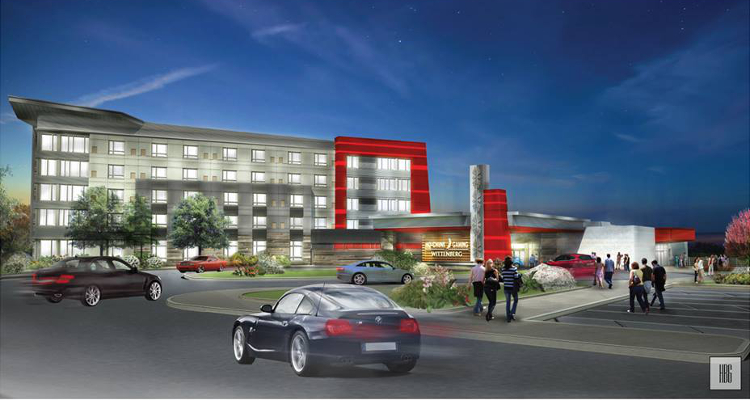The Wisconsin Winnebago Tribe, now most well-known as the Ho-Chunk Nation, has responded to numerous claims from the rival Stockbridge-Munsee Band Of Mohican Indians and defended the legality of a key part of its Project Forward casino expansion scheme.
The federally-recognized Wisconsin Winnebago Tribe operates Ho-Chuck Gaming-branded casinos in the Wisconsin communities of Tomah, Madison, Nekoosa, Wisconsin Dells, Black River Falls and Wittenberg and its Project Forward, which was first announced in August before being put into practice a month later, is set to see the latter three venues expanded at a cost of approximately $153 million.
However, the Stockbridge-Munsee Band Of Mohican Indians, which runs the North Star Mohican Casino And Resort near the small Wisconsin town of Bowler, has objected and even commissioned a study that reportedly showed that it would lose about 37% of its annual gaming revenues if the Ho-Chunk Gaming Wittenberg casino was expanded.
The Stockbridge-Munsee Band Of Mohican Indians’ casino is located only 16 miles from the rival Ho-Chunk Gaming Wittenberg facility and the tribe, which last week announced plans to withhold a revenue-sharing payment to the state worth $923,000, claimed in October that Project Forward violated the Wisconsin Winnebago Tribe’s compact because it would lead to more than 50% of revenues at the Wittenberg venue coming from gaming.
In response, the Wisconsin Winnebago Tribe released a statement on Tuesday asserting that its plan to spend $33 million to expand its Ho-Chunk Gaming Wittenberg facility by adding an 84-seat restaurant and bar alongside an 86-room hotel was legal because its compact with Wisconsin does not stipulate a revenue percentage concerning gaming but instead specifies that the activity itself cannot cover more than half of any property.
“For over six months the Stockbridge-Munsee [Band Of Mohican Indians] has been publicly opposing the [Wisconsin Winnebago Tribe’s] casino remodeling and expansion project in the village of Wittenberg, Wisconsin,” read the March 7 statement from the Wisconsin Winnebago Tribe. “During this time the Stockbridge-Munsee [Band Of Mohican Indians] has released information that is inaccurate, misleading and incorrect.”
Project Forward is moreover set to see the gaming floor at the Ho-Chunk Gaming Wittenberg expanded with the addition of 272 slots and ten gaming tables as well as new high-limit and non-smoking gambling areas while the Stockbridge-Munsee Band Of Mohican Indians had further claimed that this was illegal because federal law requires tribal casinos to be built on land that had been in trust before October of 1988.
In reply, the Wisconsin Winnebago Tribe explained that the Wittenberg land has been in trust since 1963 and that it had been “operating a casino at this location since 2008” with the area being its home “for many generations and thousands of years”.
“The [Wisconsin Winnebago Tribe] is very proud of the strides it has taken to provide a better life for its tribal members and the positive impact it has had on the communities where it has a preserve,” read the statement from the Wisconsin Winnebago Tribe. “The improvements being done at its Wittenberg facility will create more jobs and have numerous positive economic spin-off effects for local vendors and residents in the Wausau/Wittenberg area.”
Finally, the Wisconsin Winnebago Tribe responded to the often-reported David-versus-Goliath nature of the struggle between itself and the much smaller Stockbridge-Munsee Band Of Mohican Indians by drawing attention to the many needs it fulfills for its widely dispersed members, which number up to six times as many as its rival at nearly 7,000.
“The Wittenberg expansion is one way that the [Wisconsin Winnebago Tribe] can increase its revenues in order to provide basic human services for its membership,” read the statement from the Wisconsin Winnebago Tribe. “The [Wisconsin Winnebago Tribe] also does not have a single land-based reservation unlike the Stockbridge-Munsee [Band Of Mohican Indians] and other tribes in the state. The [Wisconsin Winnebago Tribe] and its tribal members are spread out over the southern half of Wisconsin, anchored by small trust and fee parcels that house the [Wisconsin Winnebago Tribe’s] governmental, business and residential holdings. This adds tremendously to the cost of providing essential governmental services to the [Wisconsin Winnebago Tribe’s] tribal members.”


